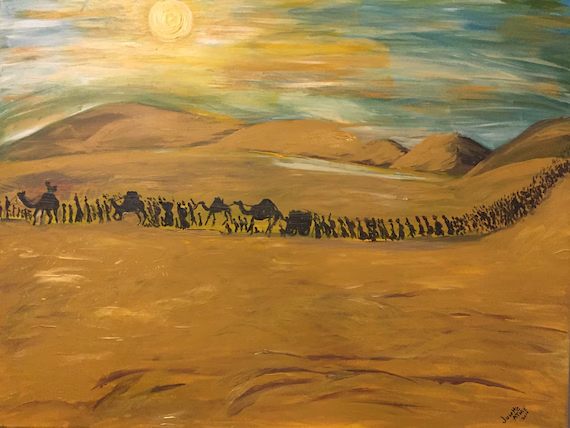The Disabled Man
News that Jesus was teaching people about God and making the ill ones, well again spread very quickly.
Wherever he went with his twelve disciples, people journeyed from all over the country and from the great city of Jerusalem to listen to him and to be healed of all kinds of diseases.
One day, when Jesus was again in Capernaum, he sat in a house that was so packed with people, no one could get in or out of the door.
Four friends carried a man, who couldn't move, to the house on a stretcher. When they found they couldn't get in through the door, they carried the stretcher up onto the flat roof of the house.
There they made a hole in the roof and used ropes to lower the man on his stretcher down into the room where Jesus was sitting.
Jesus looked up at the four friends peering through the hole in the roof and saw the faith they had in him.
Then he looked at the man on the stretcher. 'My son, he said, 'Your sins are forgiven.
The Jewish leaders who heard Jesus say this whispered angrily to each other. Jesus had no right to forgive sins, they said; 'Only God could do that.
Jesus heard what they were saying. He looked at them and asked them; 'Is it easier to forgive a man for the wrong things he has done, or to make him walk again?
To show you that I have the power to forgive sins.
Jesus stopped and turned to the man on the stretcher. 'Get up, pick up your stretcher and go home, he said.
Without saying a word, the man at once stood up and, taking his stretcher with him, he pushed his way out of the house.
Watched by his four delighted friends on the roof, he walked home, saying a prayer of thanks to God.












Comments
Post a Comment